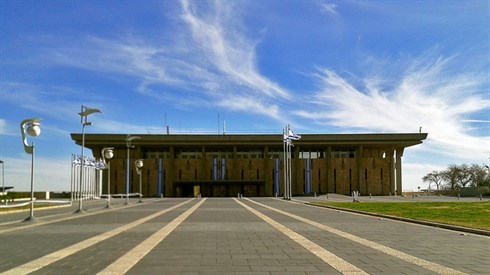2915
Question
I live in a rather large apt. complex in NY where there are a great number of observant Jews. I just moved in a few weeks ago and just a few days ago noticed that there is an ’alarm’ light that triggers whenever you open/close the front door. Very few people so far as I know - actually use the alarms in their rooms - but the light triggers regardless.
I asked the front desk how to disable it since with it triggering I could not leave the apt. for shabbat. They told me the only way to do it was to sent the handyman up and he disabled it, it took him just a few minutes. But they needed a letter from the whole apt. to do it, which of course was no problem (my roommate had no idea about the light).
When the handyman came, I asked him if he’d disabled many apts. and he said mine was the only one. This surprised me and I asked him if the alarms were in all apts. and he said yes. So apparently there are a great number of observant jews in my apt. complex who have these lights going on and do not know about them.
What should I do about this? I do not know anyone in this complex - at best a few people. Should I post a flyer in the laundry room alerting people to this issue? Should I ask that an announcement be made at the local shuls? The light is very small and very hard to see.
Answer
Someone who intends to perform a permitted action and instead, or in addition, unintentionally performs a different, forbidden action that is not by nature associated with the intended action- is called a “mitasek”. The question you ask is whether there is an obligation to inform the "“mitasek" that he is about to perform a forbidden action. Rabbi Akiva Eiger (Shu”t Rabbi Akiva Eiger 8) concludes that such an obligation exists. Many of the other poskim (Shu”t Y’chave Daat 5,28 cites the Avnei Nezer Orach Chayim 251-252 among others) conclude, however, that since the “mitasek” on shabbat is considered to have committed no transgression of any kind, there is no obligation to inform him of the unintended action he is about to perform.
Under the conditions you describe, however, not informing the others of the fact that opening their front doors turns on a light will create impossible situations that, in all likelihood, will result in some people who have heard rumors of the truth, opening the door anyway. You should inform all those who you have reason to assume may heed your warning (see Shulchan Aruch Orach Chayim 608). How best to do this is a technical question and depends on the nature of your community.

Gentiles
Rabbi Chaim Tabasky | Av 27, 5768

way to greet the sefer torah
Rabbi David Sperling | Sivan 14, 5775

cutting nails during omer
Rabbi David Sperling | Nisan 29, 5773

Are vaccinations kosher?
Rabbi David Samson | 18 Elul 5762

Bedikat chametz
Rabbi David Sperling | Nisan 11, 5785

Gentile inferiority due to genetics.
Rabbi Yoel Lieberman | Adar 6, 5785

Which Prophets did Israel kill?
Rabbi Ari Shvat | Adar 25, 5785




